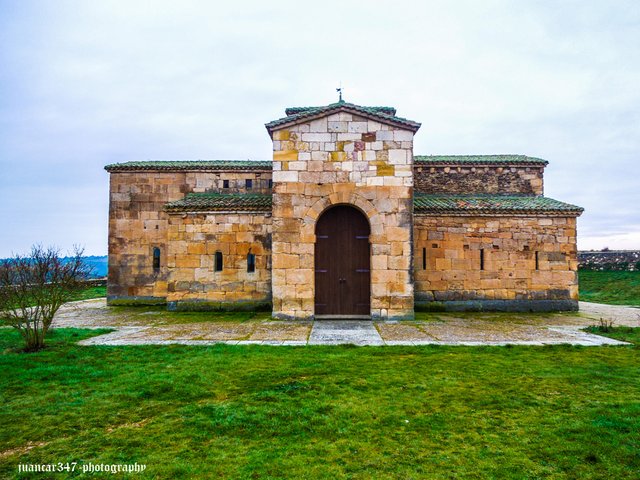
There are still sacred enclosures, of certain relevance, characteristic of that notable sacred architecture, which, adopting, as a general rule, a typical cross-shaped plan and basilica characteristics, characterized the austere cult constructions of an empire, the Visigoth, which finally collapsed. in the 7th century, in the face of the uncontrollable attacks of some Agarean armies, in whose invasion, many nobles, rebellious and dissatisfied with the efforts and policies of some sovereigns, who were characterized by their long hair, also participated, in which, stands out the figure, shrouded in the slander of legends, of its last king: Don Rodrigo.
In fact, it could be added that, as a result of this catastrophe and influenced by the influx of refugees who were settling in the most remote corners of the northern peninsula, fleeing Muslim rule, Visigothic architecture was the prelude that marked the origin of another type of architecture, the pre-Romanesque or repopulation, which, evolving towards a more consistent Romanesque, where the imposing beauty of the Benedictine monasteries began to stand out, began to fade in the middle of the 12th century, in the face of the intrusion of another more evolved architectural style. and of mysterious origins, which represented a total cultural revolution in Europe: the Gothic.
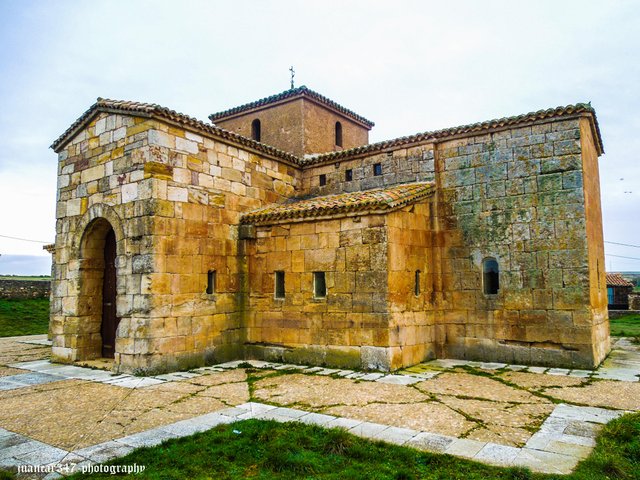
Many of these ancient Visigoth temples continued to be active, taking advantage of their proximity to the old Roman roads, which connected all the main points of the Iberian Peninsula and which were, in addition, a great stimulus for the pilgrimage routes, which reused them, all of them. time, when the possible remains of the Apostle Santiago were discovered in a dark forest in Libredón, present-day Santiago de Compostela, they became one of the main pilgrimage phenomena in the world. This temple, located a short distance from the capital Zamora - it was moved stone by stone and rebuilt a few kilometers from its original place - is located on one of the main, although perhaps less known, pilgrimage routes: the one known as Vía o Camino de la Plata, linked the southern coasts of Huelva with the coasts of La Coruña and the Atlantic. However, its beauty and the theme of its sculpture, insisting on the presentation of very exclusive passages from the Bible, such as the story of Daniel and the lions or also, the sacrifice of Abraham - observe the hand of God reaching out to stop the holocaust at the last moment - although linear, as the excellent art historian of German origin, Erwin Panofsky, would say, they do not leave anyone indifferent, contributing to the appreciation of some milestones and traditions, which, despite everything, continue to be very current currently.
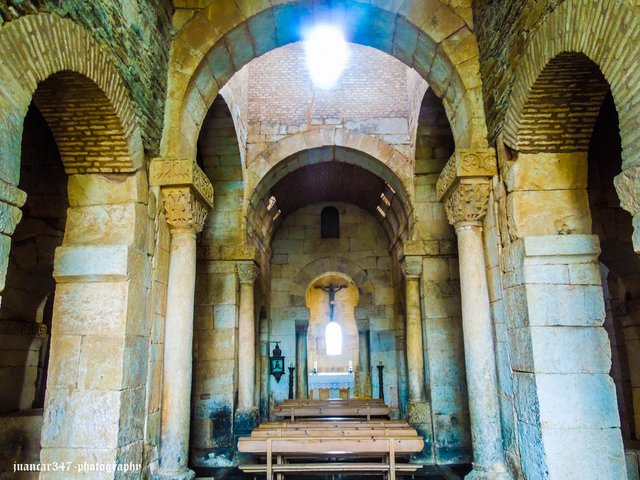
Todavía quedan recintos sagrados, de cierta relevancia, característicos de esa notable arquitectura sagrada, que, adoptando, por regla general, una típica planta en forma de cruz y características basilicales, caracterizó las austeras construcciones cultuales de un imperio, el visigodo, que colapsó finalmente en el siglo VII, frente a los incontenibles embates de unos ejércitos agarenos, en cuya invasión, participaron también no pocos nobles, levantiscos y descontentos de las gestiones y políticas de unos soberanos, que se caracterizaban por sus largos cabellos, en la cual, destaca la figura, envuelta en la maledicencia de las leyendas, de su último rey: Don Rodrigo. De hecho, podría añadirse, que, como resultado de esta hecatombe e influido por la afluencia de refugiados que se iban asentando en los más apartados rincones del norte peninsular, huyendo del dominio musulmán, la arquitectura visigoda fue el preludio que supuso el origen de otro tipo de arquitectura, la prerrománica o de repoblación, que, evolucionando hacia un románico más consistente, donde comenzó a destacar la imponente belleza de los monasterios benedictinos, comenzó a apagarse a mediados del siglo XII, frente a la intrusión de otro estilo arquitectónico más evolucionado y de misteriosos orígenes, que supuso una total revolución cultural en Europa: el Gótico.
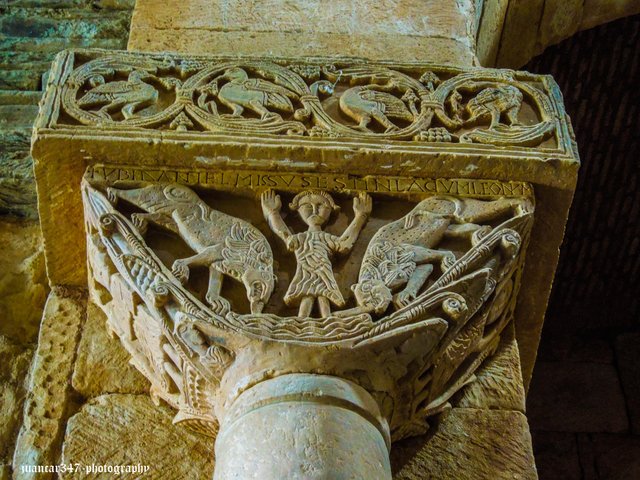
Muchos de estos antiguos templos visigodos, continuaron en activo, aprovechando su proximidad a las antiguas calzadas romanas, que conectaban todos los puntos principales de la Península Ibérica y que fueron, además, un grandísimo revulsivo para los caminos de peregrinación, que las reaprovecharon, toda vez que, descubiertos los posibles restos del Apóstol Santiago en un oscuro bosque de Libredón, la actual Santiago de Compostela, se convirtieron en uno de los principales fenómenos de peregrinación del mundo. Este templo, ubicado a escasa distancia de Zamora capital -fue trasladado piedra a piedra y vuelto a levantar a algunos kilómetros de su lugar original- se localiza en uno de los principales, aunque quizás menos conocidos caminos de peregrinación: aquel que, conocida como Vía o Camino de la Plata, unía las costas del sur de Huelva con las costas de La Coruña y el Atlántico. No obstante, su belleza y la temática de su escultura, insistente en la presentación de pasajes muy exclusivos de la Biblia, como la historia de Daniel y los leones o también, el sacrificio de Abraham -obsérvese la mano de Dios tendiéndose para detener el holocausto en el último momento- aunque lineal, como diría el excelente historiador del Arte de origen alemán, Erwin Panofsky, no dejan a nadie indiferente, contribuyendo a la valoración de unos hitos y unas tradiciones, que, a pesar de todo, continúan estando muy vigentes en la actualidad.
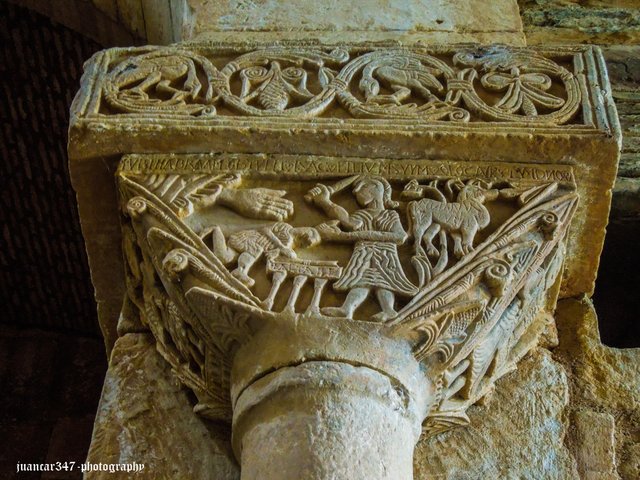
NOTICE: Both the text and the accompanying photographs are my exclusive intellectual property and are therefore subject to my Copyright.
AVISO: Tanto el texto, como las fotografías que las acompañan, son de mi exclusiva propiedad intelectual y por lo tanto, están sujetos a mis Derechos de Autor.
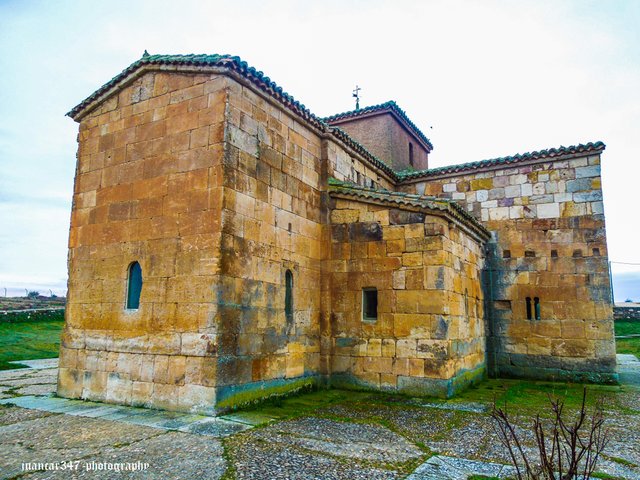
Downvoting a post can decrease pending rewards and make it less visible. Common reasons:
Submit